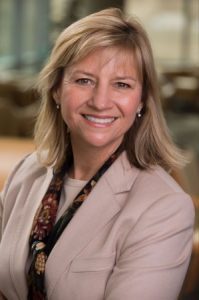Overcoming barriers to interprofessional practice/education through legislative reform: A University of Colorado case study
Journal of Interprofessional Education & Practice
Franson, Kari L., and Eric H. Gilliam
2019
Pharmacy students are required to be licensed (intern-pharmacists). Colorado statute required a licensed pharmacist to supervise students while engaging in Interprofessional clinical experiences.
Read More
An interprofessional education panel on development, implementation, and assessment strategies
American Journal of Pharmaceutical Education
2015
This report provides a primer for implementing interprofessional education (IPE) within pharmacy and health sciences curricula. In 2013, a panel of administrators and faculty members, whose institutions offered IPE, funded by the Josiah Macy Jr. Foundation, shared best collaborative practice models at the American Association of Colleges of Pharmacy (AACP) Annual Meeting. These presenters subsequently collaborated to write a primer as guidance for other institutions interested in successfully implementing and continuously enhancing the quality of IPE programs. In this article, these IPE faculty members provide a rationale for creating IPE reforms, discuss successful strategies for innovative IPE programs, and share lessons learned for implementing effective assessment tools. A structure and process for determining outcomes of IPE models are presented and strategies for exploring shared education opportunities across health professions and for integrating top-down and bottom-up methods for IPE programs are given.
Read More
Creating a culture of thoughtful prescribing
Medical Teacher
Franson, Kari L., et al.
2009
In the Netherlands 170,000 patients yearly fall victim to poor communication between health care professionals, with 44% of patients receiving inappropriate therapy as a result. Evidence indicates that this problem may be due to physicians learning to communicate therapeutic content by unstructured means during training.
Read More
The pharmacologic and clinical effects of medical cannabis
Pharmacotherapy: The Journal of Human Pharmacology and Drug Therapy
Borgelt, Laura M., et al.
2013
Cannabis, or marijuana, has been used for medicinal purposes for many years. Several types of cannabinoid medicines are available in the United States and Canada. Dronabinol (schedule III), nabilone (schedule II), and nabiximols (not U.S. Food and Drug Administration approved) are cannabis‐derived pharmaceuticals. Medical cannabis or medical marijuana, a leafy plant cultivated for the production of its leaves and flowering tops, is a schedule I drug, but patients obtain it through cannabis dispensaries and statewide programs. The effect that cannabinoid compounds have on the cannabinoid receptors (CB1 and CB2) found in the brain can create varying pharmacologic responses based on formulation and patient characteristics. The cannabinoid Δ9‐tetrahydrocannabinol has been determined to have the primary psychoactive effects; the effects of several other key cannabinoid compounds have yet to be fully elucidated. Dronabinol and nabilone are indicated for the treatment of nausea and vomiting associated with cancer chemotherapy and of anorexia associated with weight loss in patients with acquired immune deficiency syndrome. However, pain and muscle spasms are the most common reasons that medical cannabis is being recommended. Studies of medical cannabis show significant improvement in various types of pain and muscle spasticity. Reported adverse effects are typically not serious, with the most common being dizziness. Safety concerns regarding cannabis include the increased risk of developing schizophrenia with adolescent use, impairments in memory and cognition, accidental pediatric ingestions, and lack of safety packaging for medical cannabis formulations. This article will describe the pharmacology of cannabis, effects of various dosage formulations, therapeutics benefits and risks of cannabis for pain and muscle spasm, and safety concerns of medical cannabis use.
Read More
Measuring learning from the TRC pharmacology E-Learning program
British Journal of Clinical Pharmacology
Franson, Kari L., et al.
2008
Clinical pharmacology at the Leiden University Medical Centre is primarily taught by the Teaching Resource Centre's (TRC) Pharmacology database. The TRC program contains schematic graphics using a unique icon language, explanation texts and feedback questions to explain pharmacology as it pertains to pathophysiology. Nearly each course of the curriculum has a chapter in the TRC database offered for self‐study. Since using the TRC program is not compulsory, the question remains whether students benefit from using it.
Read More


